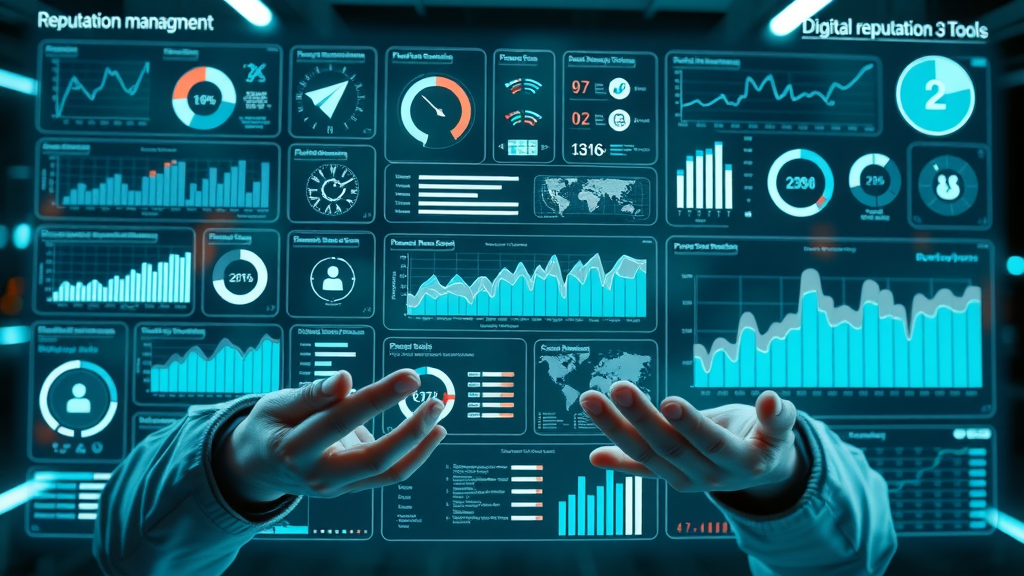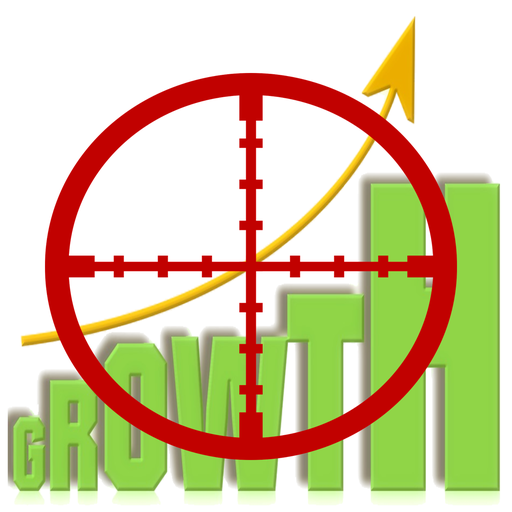Did you know that nearly 70% of potential customers will avoid a business after encountering only five negative reviews online? In our hyper-connected digital age, consumers trust online reviews and feedback as much as personal recommendations. For brands wanting to thrive, mastering digital reputation marketing is no longer optional—it's the difference between leading the market and getting left behind.
In this comprehensive guide, you’ll learn what digital reputation marketing truly entails, why it’s pivotal to your business, how it boosts brand reputation and trust, and the actionable steps to build a winning strategy. We’ll unpack tools, tactics, future trends, and best practices to help your brand shine online—whether you run a small business or a global enterprise.

Why Digital Reputation Marketing Is Shaping Success in Today’s Digital Age
Digital reputation marketing bridges the gap between your brand and your audience in ways traditional marketing never could. In today’s competitive digital landscape, building and maintaining a positive online reputation is vital. Consumers actively search for reviews, check brand responses on social media, and compare ratings before engaging with products or services. As marketing strategies continue to evolve, leading companies recognize that online reviews , customer feedback, and social media interactions hold staggering influence over brand reputation .
A single negative review can drastically reduce your pool of potential customers. Consider this: businesses with negative online profiles can lose up to 70% of their prospects. Conversely, a stream of positive reviews can boost search engine results , ensuring your business stands out. Digital reputation marketing doesn’t just build trust—it’s a critical asset for driving conversions, defending brand value, and outpacing competition. By mastering your digital reputation, you lay the groundwork for long-term growth.
Unveiling the Facts: The True Power of Digital Reputation Marketing
“ A single negative review can cost a business about 22% of potential customers. Imagine the impact of five negative reviews: Nearly 70% customers lost. — BrightLocal ”
With statistics this compelling, it’s clear that investing in digital reputation marketing isn’t just wise—it’s mission-critical. Every digital interaction, from a prompt response on social media to strategically acquiring positive reviews , moves the needle for your brand. These real-time engagements rapidly shape public perception, making or breaking your ability to attract new business. Brands that ignore the importance of their digital reputation risk falling behind, while those that nurture it enjoy elevated trust, improved visibility, and a robust competitive advantage.
Moreover, online platforms—such as review sites, search engines, and social networks—give consumers a megaphone. By proactively managing your digital footprint through reputation marketing strategies , you not only protect your brand but also inspire loyalty and advocacy among your audience. Today, digital reputation marketing is the new public relations—nimble, measurable, and incredibly influential.
How Digital Reputation Marketing Transforms Online Presence and Brand Reputation

Defining Online Reputation and Brand Reputation in Digital Reputation Marketing
At its core, digital reputation marketing merges reputation management with digital marketing tactics to shape how your brand is perceived online. Online reputation refers to the collective impression customers and the public form based on online reviews , social interactions, forum discussions, media coverage, and search results. Brand reputation , meanwhile, encompasses the trust, credibility, and emotional connection your brand builds with its audience through consistent positive interactions.
A robust online presence aligned with your brand values can be a powerful magnet for prospective customers. Showcasing positive reviews , addressing negative feedback gracefully, and maintaining vibrant social channels are the building blocks of a brand-wide approach to reputation marketing . Such strategies compel customers to choose your business over competitors, solidifying your position in the digital marketplace.
By focusing on both online and brand reputation, your digital reputation marketing efforts work to not only defend but also actively build equity and positive associations that fuel customer loyalty and long-term business success.
Connecting Digital Marketing with Online Reputation Management
True digital reputation marketing lies at the intersection of digital marketing and online reputation management . Digital marketing amplifies your brand story, products, and services through search engines, social media, and digital ads. Online reputation management ensures that the story being told is positive, accurate, and aspirational.
Effective integration allows brands to monitor, respond to, and influence public perception in real time. Tactics such as search engine optimization (SEO), active content creation, and influencer partnerships all contribute to how your brand is represented in search engine results and review platforms. When your marketing strategies are guided by reputation insights, you can efficiently counteract negative reviews, promote positive customer experiences, and optimize every interaction for trust.
The synergy between digital marketing and online reputation management means that every campaign, post, and review is an opportunity to build trust, improve search engine results , and shape your brand narrative for the better.
Building Blocks of Robust Reputation Marketing Strategies
Core Elements: Positive Reviews, Social Media, and Search Engine Visibility

Strategic reputation marketing hinges on three pillars: acquiring positive reviews , cultivating an engaged presence on social media , and maximizing search engine visibility . These elements work together to build trust and authority. Positive reviews on review sites elevate your credibility and entice new customers. Every positive rating is a silent salesperson advocating for your offerings.
Social media further amplifies positive experiences, allowing you to interact directly with your audience and respond swiftly to both praise and concerns. Meanwhile, search engine optimization ensures your best reviews and content appear prominently in search engine results —making sure your first impression is a memorable one.
When integrated, these tactics form the backbone of any powerful marketing strategy . They help brands build trust, boost engagement, and ultimately drive revenue through superior customer relationships.
The Role of Management Software and Automation in Modern Reputation Marketing
Modern reputation marketing is made possible—and far more efficient—by purpose-built management software and automation tools. These platforms monitor online mentions, consolidate customer reviews from multiple review sites , provide real-time alerts for negative feedback, and even automate responses to frequently asked questions.
The true value of management software lies in its ability to analyze massive amounts of customer feedback across digital platforms, surfacing trends and highlighting emerging risks or opportunities. Automated systems can issue review requests, track engagement, and generate detailed analytics, freeing up teams to focus on more nuanced aspects of brand growth.
As part of a sophisticated marketing strategy , automation empowers brands to scale reputation efforts without sacrificing authenticity or responsiveness. With the right tools, brands stay ahead of crises and turn positive interactions into sustained loyalty.
Digital Reputation Marketing vs. Traditional Reputation Management
Aspect |
Digital Reputation Marketing |
Traditional Reputation Management |
|---|---|---|
Methodologies |
Uses digital channels, real-time monitoring, and analytics-driven responses. |
Relies on public relations, press releases, and offline brand maintenance. |
Reach |
Global, omnichannel (search engines, social media, review platforms). |
Primarily local or regional, limited by media coverage. |
Effectiveness |
High; measurable impact and continuous engagement. |
Variable; slow response and limited feedback loops. |
Speed |
Immediate, 24/7 response capability. |
Slower; dependent on manual monitoring. |
Measurement |
Advanced analytics and KPIs. |
Limited, often anecdotal or based on traditional media metrics. |
Typical Results |
Scalable brand growth, improved trust, and superior customer loyalty. |
Reactive reputation control, less adaptability to viral changes. |
Why Online Reputation Marketing Outpaces Conventional Methods
Online reputation marketing outstrips traditional methods by delivering faster, data-driven, and scalable results. While traditional reputation management leans on public relations and media coverage, digital approaches engage directly and authentically with the audience. Real-time responses—especially on social media —enable brands to address concerns quickly, manage negative reviews , and amplify positive feedback with unprecedented immediacy.
Brands using reputation marketing enjoy greater transparency, instantaneous measurement through analytics platforms, and the ability to tailor responses to specific incidents or reviews. In an era where every customer can publish an online review, digital tools are essential for defending and bolstering brand reputation at scale.
Ultimately, the flexibility, speed, and reach offered by digital reputation marketing make it the preferred strategy for high-growth brands seeking to cultivate lasting trust and accelerate business success.
Crafting a Powerful Digital Reputation Marketing Strategy Step-By-Step
Setting clear objectives
Monitoring online presence and brand reputation
Leveraging social media marketing and positive reviews
Managing negative feedback and crisis management
Utilizing management software for efficiency
Integrating digital marketing tactics with search engine optimization
Start by defining clear, measurable goals for your digital reputation efforts. Are you focused on increasing positive reviews , reducing negative feedback, or boosting search engine results ? Next, consistently monitor all digital channels— search engines , review sites , and social media platforms—to stay updated on public sentiment and identify areas for improvement.
Proactively seek customer feedback , and make social media marketing a cornerstone of your outreach plan. Address negative reviews promptly and transparently to show your dedication to customer service. Employ management software and analytics tools to streamline monitoring, reporting, and crisis response. Finally, integrate SEO and paid digital ads to protect your brand in engine results and ensure the most positive content is seen first.
Every step should reinforce the overall marketing strategy : building trust, amplifying customer satisfaction, and driving measurable improvements in brand reputation and growth.
Harnessing Social Media for Digital Reputation Marketing Excellence
Top Social Media Marketing Tactics for Online Reputation

Social media marketing is a powerhouse channel for bolstering digital reputation. Best-in-class brands use platforms like Facebook, Instagram, X (Twitter), LinkedIn, and TikTok to engage with customers, share good news, and respond to concerns in real time. Posting user testimonials, sharing glowing customer reviews , and launching branded hashtags can all spark positive engagement and organic reach.
It’s not just frequency, but the authenticity of interactions that counts. Direct replies to queries, especially from dedicated support accounts, display care and competence. Running targeted ad campaigns can amplify positive experiences and help shift attention away from negative incidents. Every social post is a chance to reinforce core values, showcase community involvement, and solidify your online reputation .
Consistency across channels—unified brand voice, timely responses, and strategic content—ensures your reputation remains strong and distinctly positive in the eyes of customers.
Responding to Negative Reviews and Promoting Positive Feedback
Negative reviews, while potentially damaging, represent a golden opportunity to strengthen brand reputation . Prompt, empathetic responses reassure both the reviewer and prospective customers watching from afar. Always acknowledge concerns, apologize where justified, and offer to rectify the issue offline. This approach not only resolves individual cases but demonstrates pattern-driven accountability.
On the flip side, don’t be shy about sharing positive feedback . Showcase stellar reviews on your website, thank happy customers on social media, and consider incorporating testimonials into paid media marketing campaigns. A steady stream of public appreciation reminds the market that your brand delivers on its promises.
Turning negative episodes into well-managed interactions and consistently celebrating positive experiences builds brand equity, inspires loyalty, and attracts new customers—all benefits powered by smart digital reputation marketing.
The Impact of Positive Reviews on Search Results and Brand Trust
“ 97% of consumers read reviews for local businesses in 2023; 49% trust online reviews as much as personal recommendations. ”
In the digital world, positive reviews don’t just attract new business—they elevate your placement in search engine results and cement your reputation as a trustworthy provider. Search engines reward businesses with high ratings and frequent feedback, often featuring them in local packs and “Top Rated” selections. This means more visibility, more clicks, and ultimately more customers.
Additionally, reviews foster a sense of community validation. Potential buyers feel reassured when they see that others have had great experiences, reducing fear and hesitation around making a purchase. For brands, every glowing review is not just a vote of confidence—it’s fuel for long-term growth.
So, whether you’re launching a new product or entering a new market, positive reviews and robust brand trust are keys to winning consumer attention and loyalty.
Generating Positive Reviews: Best Practices for Digital Reputation Marketing

Soliciting positive reviews must be an ongoing initiative, not a one-time push. Proactively ask satisfied customers to leave feedback on multiple review sites after every successful purchase or support interaction. Use email follow-ups, in-store signage (for brick-and-mortar), and simple review request links in digital communication.
Make it easy and convenient with direct links, mobile-friendly forms, and instructions. Thank every customer who shares a review, even a neutral one, to demonstrate your appreciation for honest feedback. Encourage your team to respond promptly, reinforce positive experiences, and invite customers back to your business. Smart brands also share glowing reviews on social platforms to amplify their impact and show the world the value they deliver.
Remember, consistency is key—continually generating and sharing positive reviews solidifies your reputation and keeps your online profiles fresh in the eyes of both customers and search engines.
Dealing with Negative Reviews: Turning Challenges into Opportunities
No brand is immune to negative feedback , but your response can tip the scales in your favor. The first rule is speed: address negative reviews swiftly to signal attentiveness. Empathy and professionalism are paramount—acknowledge the issue, seek to resolve it privately, and offer meaningful solutions when possible.
Use each negative review as a learning opportunity. Analyze patterns for product or service improvements, and publicly thank reviewers for their honesty. A visible track record of fair, timely responses reassures future customers that their satisfaction is your top priority.
By transforming negative incidents into positive interactions, brands not only mitigate harm but can emerge even stronger, building trust and setting themselves apart from competitors still stuck in reactive, outdated reputation management practices.
Critical Tools and Management Software for Reputation Marketing Success
Online reputation management software
Review monitoring platforms
Social listening tools
Digital marketing analytics platforms

Deploying cutting-edge tools is essential for keeping pace with today’s fast-moving reputation landscape. Online reputation management software helps you track reviews and mentions across dozens of platforms—Google, Yelp, Facebook, Trustpilot, and more. These platforms gather, analyze, and present actionable insights so you can spot trends and catch issues before they spiral.
Review monitoring platforms and social listening tools equip your team to gauge public sentiment, identify influencers, and engage directly where your audience spends time. Complement these with digital marketing analytics platforms that offer consolidated dashboards, campaign performance tracking, and customizable alerts for key reputation metrics.
Combined, these critical tools turn data into strategy, enabling you to act quickly, optimize engagement, and measure the return on your reputation marketing investments.
Crisis Management in Digital Reputation Marketing: Proactive and Reactive Measures
Identifying a reputation crisis early
Developing a response strategy
Communicating transparently
Rebuilding trust using social media and digital marketing
The best defense against a digital crisis is a proactive approach. Start by setting up alerts to catch red flags early—this allows you to identify and respond to reputation threats before they escalate into full-fledged crises. Next, establish a clear response protocol within your team, including prepared statements and escalation paths for serious incidents.
Transparency is vital. Address the public openly, accept responsibility when warranted, and outline steps being taken to prevent future incidents. Once the immediate crisis passes, use social media and digital marketing channels to communicate ongoing improvements and re-engage with your audience. Rapid, believable crisis management demonstrates maturity, preserves brand reputation , and can even turn skeptics into advocates.
What is reputation marketing in digital marketing?
Digital Reputation Marketing Explained: Combining Reputation Management and Digital Marketing
Reputation marketing in digital marketing involves leveraging a brand's reputation through digital channels to enhance credibility, attract more customers, and gain a competitive edge. This includes gathering positive reviews, managing negative feedback, using social media, and optimizing search engine results.

What are examples of digital reputation?
Key Examples of Effective Digital Reputation Marketing
Examples include positive Google reviews raising a local business's profile, quick and authentic responses to negative reviews, influencer testimonials shared on social media, and strategic SEO to ensure favorable content ranks higher in search results.
What are the 4 F's of digital marketing?
Applying the Four F's in Digital Reputation Marketing
The 4 F's of digital marketing — Find, Focus, Fast, Feedback — guide brands to identify target audiences, concentrate efforts on key segments, act swiftly in response to trends or crises, and use feedback for continuous improvement.
What are the 5 R's of digital marketing?
Leveraging the Five R's for Enhanced Digital Reputation Marketing Results
The 5 R's are Reach, Relevance, Reputation, Relationship, and Return. Effective digital reputation marketing integrates all these elements—maximizing visibility, maintaining brand reputation, engaging audiences, and driving measurable results.
Future Trends in Digital Reputation Marketing and Online Reputation Management
AI and Automation: The Next Frontier for Reputation Marketing

Artificial intelligence and automation will revolutionize the next era of digital reputation marketing . AI-powered sentiment analysis, chatbots for instant replies, and automated review solicitation tools will streamline every aspect of reputation growth and defense. Advanced analytics will identify patterns invisible to the human eye, allowing brands to act even faster and more accurately.
Expect next-gen tools that customize responses based on customer profiles, deliver predictive risk alerts, and orchestrate synchronized campaigns across digital channels. As technology advances, brands that embrace AI and automation will set the gold standard for online reputation management , leaving slower competitors in the dust.
Proactive, data-driven, and customer-centric—these trends define the future of digital reputation marketing.
Actionable Steps to Launch a Digital Reputation Marketing Campaign
Audit current online reputation
Select reputation management software
Develop an integrated digital marketing and media marketing plan
Encourage positive reviews and handle negative feedback proactively
Measure progress and refine strategies
Launching a successful digital reputation marketing campaign starts with a thorough audit. Review where your brand stands on search engines , review sites, and social media. Choose reputable management software to centralize monitoring and response. Develop a comprehensive digital and media marketing plan integrating email, SEO, social media, and paid ads.
Make positive review generation a key focus and establish clear protocols for responding to negative feedback. Use performance metrics—such as improved ratings, better search engine visibility , and rising engagement rates—to adjust your tactics. With regular measurement and continuous improvement, your campaign will achieve sustained impact.
Frequently Asked Questions About Digital Reputation Marketing
Does digital reputation marketing work for small businesses? Absolutely. Digital reputation marketing helps small businesses level the playing field, attract local customers, and build trust through genuine online reviews and proactive social media engagement.
How quickly can results be expected? While positive changes can emerge within weeks, sustained growth in reputation and visibility often takes 3–6 months, depending on your industry competition and baseline profile.
Are there risks to online reputation marketing? Like any marketing strategy, there are risks—especially if responses to negative feedback lack empathy or seem insincere. Over-automation can backfire, so balance technology with authentic human engagement.
What is the ROI of reputation marketing strategies? Brands typically see improved conversion rates, customer retention, and organic growth. Monitoring analytics and customer feedback ensures your investment delivers measurable return over time.
Key Lessons for Mastering Digital Reputation Marketing
Digital reputation marketing is foundational to brand growth.
Positive reviews and a robust online presence drive trust.
Social media and management software are critical tools.
A proactive brand reputation strategy yields long-term benefits.
Ready to Elevate Your Brand? Embrace Digital Reputation Marketing
Take decisive action: audit your reputation, build a proactive marketing strategy, leverage technology, and turn every digital interaction into an opportunity for brand success. Start by Discovering your Credibility and Top-of-Mind Authority Score by getting your TrustSignal Analysis here .
To further enhance your understanding of digital reputation marketing, consider exploring the following resources:
“Digital Reputation Management: Best Practices” ( reputationsciences.com )
This article outlines essential strategies for monitoring online mentions, engaging with customers, and leveraging social media to cultivate a positive brand image.
“Online Reputation Marketing: How to Strengthen Your Brand Image” ( rbsreputationmanagement.com )
This resource delves into modern tools and technologies that drive online reputation marketing, offering insights into monitoring, analyzing, and enhancing your digital presence.
By integrating these best practices and tools into your strategy, you can effectively manage your brand’s online reputation and foster long-term success.
 Add Row
Add Row  Add
Add 




Write A Comment